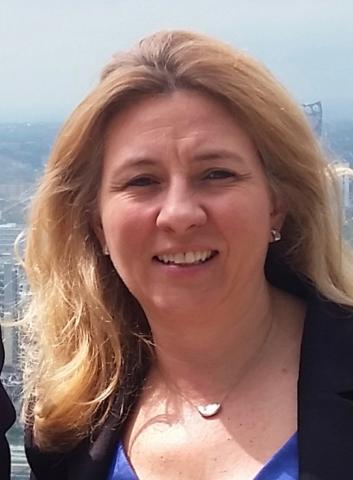An Interview with Diana Hernandez, Anthony Nolan Research Institute's Head of the Immunotherapy Group
Tell us a bit about yourself and your background:
My name is Diana Hernandez, and I have recently been appointed Head of the Immunotherapy Group at the Anthony Nolan Research Institute. Prior to my appointment here, I was Principal Scientist at Plasticell Ltd, a biotechnology company specialising in stem cell technologies and cell therapy products. Before that I worked in academia for many years, mainly at University College London and Imperial College London. Unconventionally, for an academic career, I worked in a diversity of fields, from neurogenetics to liver diseases, specialising in stem cell biology over the last 15 years or so.
What does the Immunotherapy Group do?
The Immunotherapy Group aims to bring new immunotherapies through clinical trials to improve the treatments offered to patients. Immunotherapy harnesses the power of the body’s immune system to combat disease. Our immune systems evolved to protect our bodies from attack from outside pathogens and from internal risks such as the uncontrolled growth of cancerous cells. To do this effectively, the immune system possesses a myriad of different cell types and molecules with different roles that allow it to recognise “foreign invaders” and neutralise them. However, there is a risk after transplant that the donor’s immune cells could recognise the patient’s cells as foreign and attack them, resulting in Graft versus Host Disease (GvHD), which could harm the patient. By having a better understanding of the cell types involved in immune responses, we can control them better, and harness their power to treat patients with complications following transplant. Our priorities are improving engraftment, preventing relapse, and treating GvHD.
What difference has your research made, or could make, for patients?
Translating scientific findings into treatment is a very long process, so it may take decades before research results make it into clinical practice. Nevertheless, we are now the closest we have ever been to bringing new therapies to patients. The primary aim of our research is to decrease the number of patients dying post-transplant due to complications. In the next few years we are hoping to be able to increase the number of cord blood transplants that can take place, by expanding the number of cells in the lab prior to transplantation, so smaller units that may be a better match can be used for transplant.
What will be your research priorities for the next year?
Our aims continue to be to improve the outcomes of transplant patients. We are examining the donor factors that affect the success of cord blood transplants, for example if the mother has had any previous pregnancies, and her CMV immune status. New findings from this project could potentially change the way cord blood units are selected for transplantation. We are also looking at harnessing the power of ‘Natural Killer’ cells in cord blood to kill tumour cells, by expanding and activating these in the lab to make them even more powerful at combating cancer relapse.
How can people support this work?
The first way people can be involved is by registering as a potential cord donor. Pregnant women who are planning to give birth in Leicester, Manchester or London may be able to donate their cord to Anthony Nolan. Cords which have enough stem cells are banked for use in transplant, but if not then they may be used for research. Without people generously donating their cord, we wouldn’t be able to carry out much of our research.
The second way people can support this work is by giving money or fundraising for Anthony Nolan. There’s still a lot to do to improve survival rates and decrease post-transplant complications, so by giving money to Anthony Nolan you could help support our world-class research.
Lear more about how else can you support our life saving work: https://www.anthonynolan.org/8-ways
